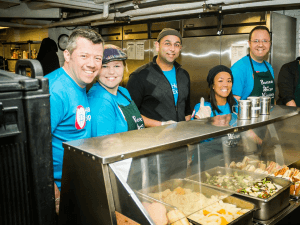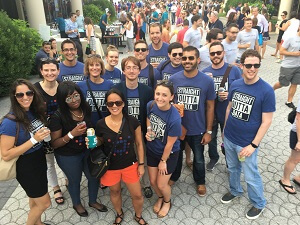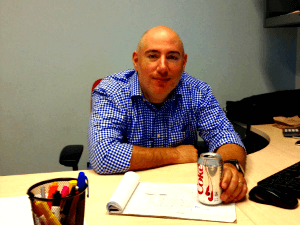As we work to help our clients unlock the power of their data, Experian Data Quality is also committed to helping empower the next generation of data users. In that spirit, we launched a scholarship contest this year that prompts rising college seniors to show us how they use data in their daily lives. To enter, the students had to submit a one- to two-minute video and a short essay describing the importance of data quality. They had four months to prepare and submit their entries, with the promise of a $5,000 scholarship for the winning participant.
We received great submissions from students around the country and our panel of judges narrowed it down to a group of 10 finalists whose submissions demonstrated originality, creativity, and passion for the positive impact of data quality. From the 10, one submission really stood out. The panelists selected Luis Martinez, a business technology major from Arizona State University (ASU) as the winner. Luis presented not one, but two compelling cases of how he uses data in his day-to-day life. One way is through his work with the department of Earth and Space Exploration at ASU. The department works closely with the National Aeronautics and Space Administration to build and construct new technologies that enable space exploration and lead to scientific discovery. It also works to reach out to the student population at ASU and the greater community.
Part of Luis’ role at the department of Earth and Space Exploration is to coordinate K-12 school outreach programs that promote STEM education. The majority of schools in the program are Title-1 schools that serve low-income students in the area. On Tuesday and Thursday mornings throughout the year, diverse groups of students from various local schools visit the ASU campus to participate in a program that emphasizes the opportunities of higher education and how college can be an attainable reality for each of them. Luis and his team truly care for each of the students that walk through the department doors and hope to expose them to possibilities beyond what they may have imagined.
Data plays a huge role in the public outreach initiative. In order to secure proper funding each year, the team must demonstrate the impact the program has. They must be able to show growth and progress, and articulate to the leadership board how the program changes the lives of the thousands of kids who participate. And that story relies on the data. Without good data quality, Luis and his team would not be able to continue the great work they do. They track the number of students who participate in the program (which is between 2000 and 3000 per semester!) and gather evidence of the program’s impact on the kids. The mission of the program also hits close to home for Luis. “As a first-generation Latino student and as the son of immigrant parents, I know what it feels like to not always believe in the possibility of a greater future,” he said. “I believe that with the right amount of exposure, encouragement, and mentoring, a child can receive the courage to defeat any odds that he or she faces.”
The second way Luis uses data in his daily life is through his involvement with El Concilio coalition. El Concilio is an organization at ASU that seeks to unite Latino, Chicano, and Hispanic student organizations at the university. The largest student coalition on campus, El Concilio represents the interests and needs of the students it serves and promotes awareness of their cultures. As the vice president of El Concilio, Luis once again depends on data. From recruitment and retention to event planning, operations, and logistics, data is crucial to every aspect of the coalition. Luis and the executive board look at data to inform both the two-year plan and the five- to ten-year strategies. They determine the areas of focus for their plans based on the data they have about what works well and which areas could be improved moving forward. Good data collection and data quality enables El Concilio to be a strong organization and keep functioning effectively. Data helps Luis make decisions about how to target and engage students on campus and make sure El Concilio continues supporting its members through graduation and beyond.
Luis has already begun working part-time as a Technical Specialist at Apple, and he will transition to a full-time position upon graduation. He plans to find new ways to give back to the local community, and particularly to provide better resources to first generation Latino students who are struggling or lack the knowledge to apply and succeed in college.
Congratulations, Luis! We look forward to seeing how you continue to use your data.








